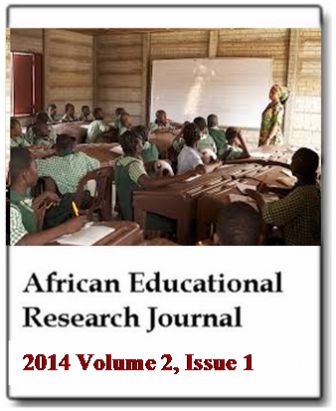Environmental degradation and assessment in northern Ghana: From populist and classic methods to methodological triangulation approach
Isaac Agyemang and Steve CarverAfrican Educational Research Journal
Published: January 1 2014
Volume 2, Issue 1
Pages 12-19
Abstract
As given in the Principle 17 of the Agenda 21, there is the need for environmental assessment for human developmental activities that are likely to have significant adverse impacts on the natural environment (UNCED, 1992). This article reviews various assessment methodologies and the reasons why methodological triangulation is a preferred choice to assess environmental degradation. Methodological triangulation is seen as the use of multiple methods in studying social science issues of concern so that to increase the study validity and or credibility. This implies that triangulation is the combination of two or more method approaches to assess social issues. The study reviews the applications of the populist and the classic approach in natural resource assessment, their advantages and disadvantages and methodological triangulation as a combination of both for neutralizing the flaws of the two approaches. Thus, to reap the benefits of the two approaches and minimizing the drawbacks, the combination of these two approaches has been advocated in this article as well. This study then tests the strength of methodological triangulation to assess environmental degradation in northern Ghana.
Keywords: Methodological triangulation, populist approach, classic approach, environmental degradation, environmental assessment.
Full Text PDF
